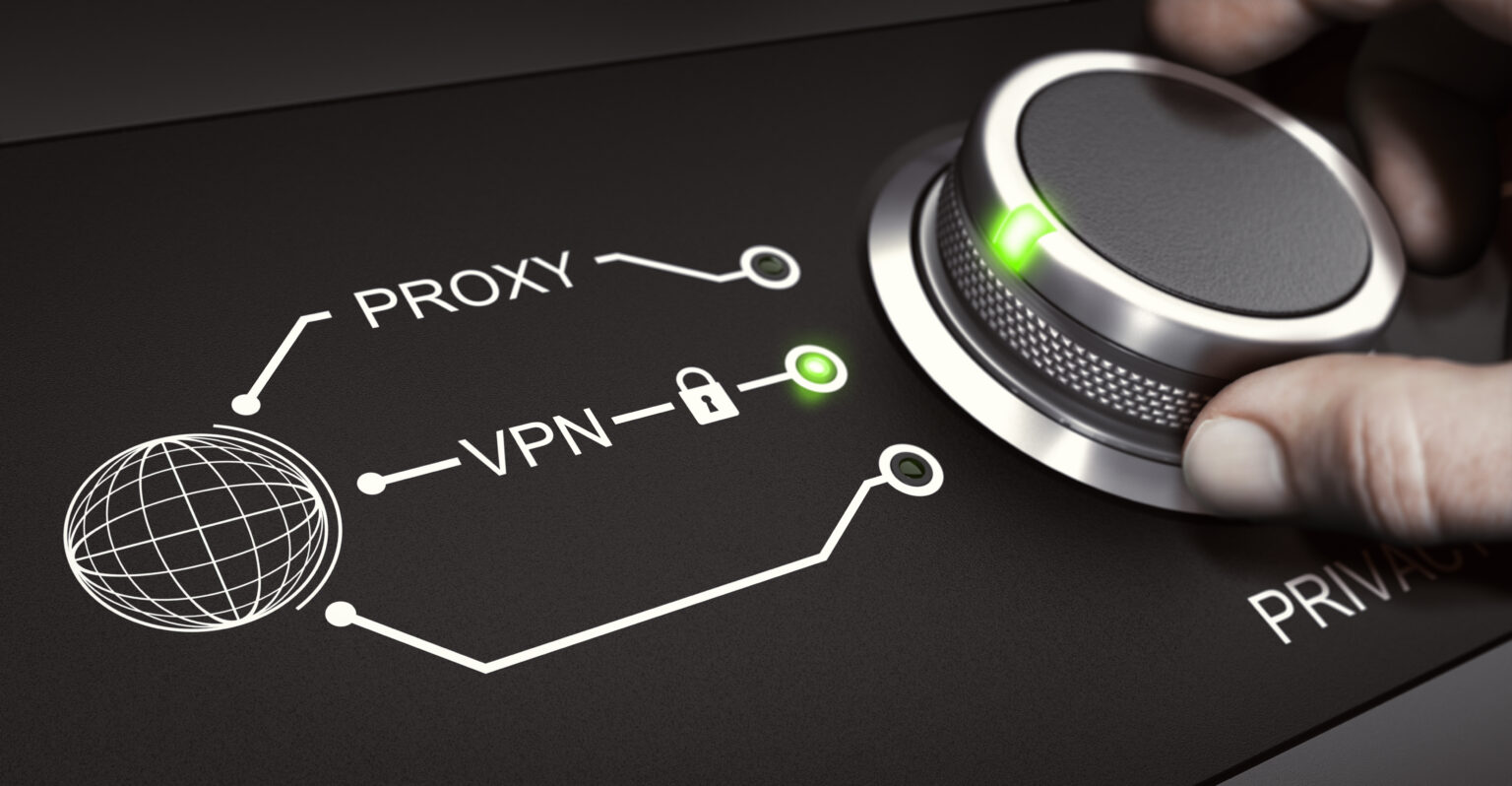Blog

Published on 26/05/2023
What is VPN?
Keep reading to discover everything you need to know about VPNs — how they work, what they allow you to do, and whether they are right for you.
So, before determining if it’s worth using one, let’s take a look at its features. Below you’ll find some useful information to help you better understand. You’ll learn if there are free VPNs available, which are the best VPNs on the market, their prices, and whether their use is legal.
A man using a switch to select a secure VPN connection. Concept of virtual private network and online privacy. Composite image between a photo of a hand and a 3D background.
A VPN, or Virtual Private Network, is a service or program designed to hide and protect a user’s online browsing.
Its main function is to hide all activities carried out on the internet. A VPN creates a secure connection between the user’s device and a remote server, encrypting the data transmitted through this connection. This prevents third parties, such as hackers or unauthorized users, from accessing personal information or intercepting the user’s connection.
A VPN can be particularly useful when using public or unsecured Wi-Fi networks, such as those found in cafés, airports, or hotels. In these situations, a VPN protects your privacy and sensitive data by hiding your IP address and making your browsing information inaccessible.
When you connect to an unknown Wi-Fi network, it’s important to consider the security of the connection and protect your device. Using a VPN is an effective way to avoid unpleasant surprises and safeguard your online privacy, preventing unwanted third parties from spying on you or accessing your sensitive data.
How to Use a VPN
When it comes to how VPNs work, every time you connect to the internet, there is a constant exchange of data through your computer or mobile device. This data is continuously sent and received until you disconnect.
The data or information exchanged can be tracked and monitored by the service provider that offers the connection.
Additionally, third parties can intercept and obtain this information. This is where a VPN comes into play, acting as a mediator between the websites you visit and your device, ensuring that your identity and information remain secure.
A VPN encrypts the data, making it incomprehensible to unauthorized third parties. It can also modify your geographical location, making it difficult to trace the specific computer or mobile device you are using to connect to the internet.
How to Activate It?
What can actually be traced is the geographical location of the server the VPN uses. VPN service providers have thousands of servers located around the world.
Once the VPN is activated and connected to the internet, you can choose the desired location. At this point, the data is encrypted and sent to one of the company’s servers managing the private virtual network.
The next step involves decrypting this information, which is then sent to the website you want to visit.
Using a VPN is simple. First, you need to consider which operating system you’re using and ensure that the VPN you’re installing is compatible. Depending on your needs, you’ll choose the most suitable VPN product available online.
To proceed, you’ll be asked to register on the company’s website. After downloading the VPN, you can install it. Then, simply launch the VPN. At this point, you can choose to connect automatically to a server or manually select one from a displayed list.
Which is the Best VPN?
When it comes to the best VPNs on the market, there are some noteworthy options. One of the most popular and well-regarded is NordVPN.
With this product, you can connect up to 6 devices simultaneously. In addition, NordVPN offers around 5,000 servers worldwide. Another option to consider is ExpressVPN, which allows you to connect 5 devices and offers around 3,000 servers across the globe.
Another notable option is Surfshark. With this VPN, you can choose from around 1,040 servers and connect an unlimited number of devices.
Are They Legal?
When it comes to data encryption, location spoofing, bypassing geo-restrictions, and so on, it’s natural to wonder about the legality of VPNs. If you’re asking this question, rest assured that using a VPN is legal and safe, at least under Italian law.
However, it’s important to note that a VPN does not protect you from committing illegal activities online. Similarly to Italy, other Western countries allow the use of VPNs. The situation is different, however, in nations governed by authoritarian leaders such as Turkmenistan, Iran, North Korea, China, and Russia.